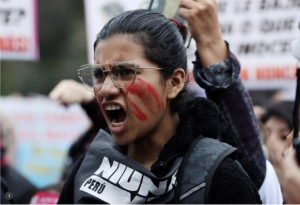None of the proposals introduced since January include the direct cash payments to Black Californians that the state’s reparations task force recommended.
After the murder of George Floyd in Minneapolis set off social justice protests and a racial reckoning in the summer of 2020, California created a task force to look into the issue of reparations.
A nine-member panel conducted research on the harm done to the state’s roughly 2.5 million Black residents by systemic racism and the legacy of slavery. Though California joined the union as a free state, Black people were still enslaved here, and experts say that discriminatory housing, voting and criminal justice policies hampered the ability of Black Californians to accumulate wealth for generations.
The task force released a more than 1,000-page report with its findings, including ways that California lawmakers could address past wrongs. It recommended more than 100 policy changes in education, housing and other areas; a formal apology from the state to Black residents; and, most notably, billions of dollars in direct cash payments.
Lawmakers are now acting on some of that guidance. More than a dozen proposals have been introduced since January as part of a reparations legislative package. But none of the proposals are for direct cash payments.
Kamilah Moore, a scholar and lawyer and the chair of the California task force, called that omission “unfortunate.” The task force recommended payments totaling as much as $800 billion to Californians who are descendants of enslaved African Americans or free Black people who lived in the United States before the end of the 19th century.
Moore said the payments would not be a gift; they would be compensation for decades of lost property, wealth and opportunities.
Subscribe to The Times to read as many articles as you like.




